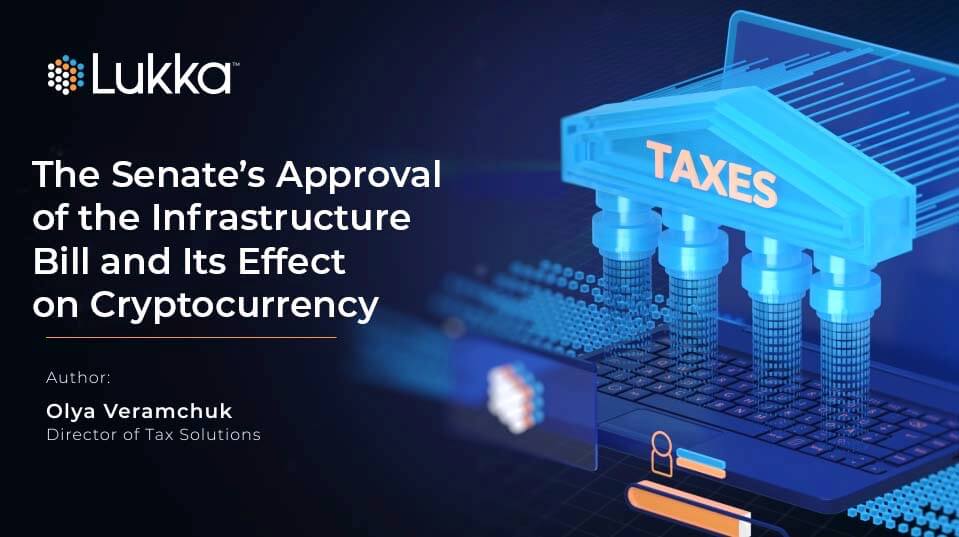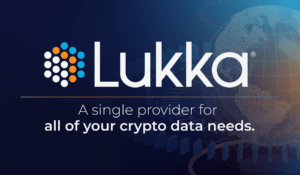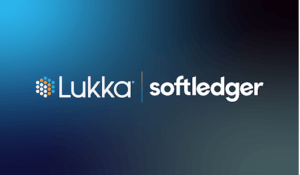Author: Olya Veramchuck, Director Tax Solutions in Tax & Regulatory Affairs at Lukka
On Tuesday, August 10th, the Senate approved the much-debated Infrastructure Bill, a cornerstone of President Joe Biden’s agenda. The bill is estimated to raise $28 billion from digital asset investors by applying new information reporting requirements on participants in the digital asset industry.
Current Guidance with Section 6045
Generally, under Section 6045 rules, those falling under the definition of a “broker” are required to issue Form 1099 to report gross proceeds on a transaction-by-transaction basis together with their customers’ names, social security numbers, and other relevant information. The language of the bill expanded the definition of a broker to include “any person… effectuating transfers of digital assets, including any decentralized exchange or peer-to-peer marketplace.”
This development has a significant impact on many participants of the digital asset ecosystem, particularly within DeFi, and would likely put a strain on the entire industry.
Section 6045’s Reporting Requirements
Complying with Section 6045 information reporting requirements may not prove possible for many as they have no visibility to the parties sending or receiving digital assets. The approved bill’s language has an extensive net covering miners, services that stake digital assets, node operators, validators, smart contracts, open source developers, hardware and software wallet manufacturers, DAO token holders, and others. This also touches individual investors who are either:
- Buying or selling crypto from other individuals
- Trading crypto for crypto through a crypto exchange (or equivalent) as crypto/crypto trades are simply two transfers occurring at the same time that a broker or dealer facilitates, most often through the use of technology or through a DEX, where there may not be an institution and only technology facilitating exchange between individuals
This would effectively require affected individuals to report at the level of institutions. Transactional reporting is easily done by traditional financial institutions , where it is clear who the broker is (for example, an intermediary like Vanguard) and who the customers are (for example, investors in Vanguard mutual funds).
The issue was recognized by a number of Senators, including Senators Wyden, Toomey, and Lummis, who advocated revising the language to exclude miners, hardware and software wallets providers, and limit the reporting obligations to the parties who can actually report (for example, crypto exchanges).
However, the narrowed scope was determined to reduce the projected revenue by approximately $5.17 billion. Despite Senator Portman tweeting that an agreement was reached on “an amendment to clarify IRS reporting rules for crypto transactions without curbing innovation or imposing information reporting requirements on stakers, miners, or other non-brokers,” the language remained in the originally proposed form.
The passing of the bill without narrowing down the definition of a broker may potentially result in the outflow of talent and innovation overseas as venues owned and administered by foreign persons are out of reach of US reporting rules. This could materially limit the economic benefits of the digital assets industry in the United States compared to the global economy.
Because the Treasury and the IRS are yet to issue any formal guidance on the taxation of digital assets, it is not unreasonable to expect at least 18-24 months of preparation time before the new rules come into effect. Currently, the law is expected to be implemented in 2023.




